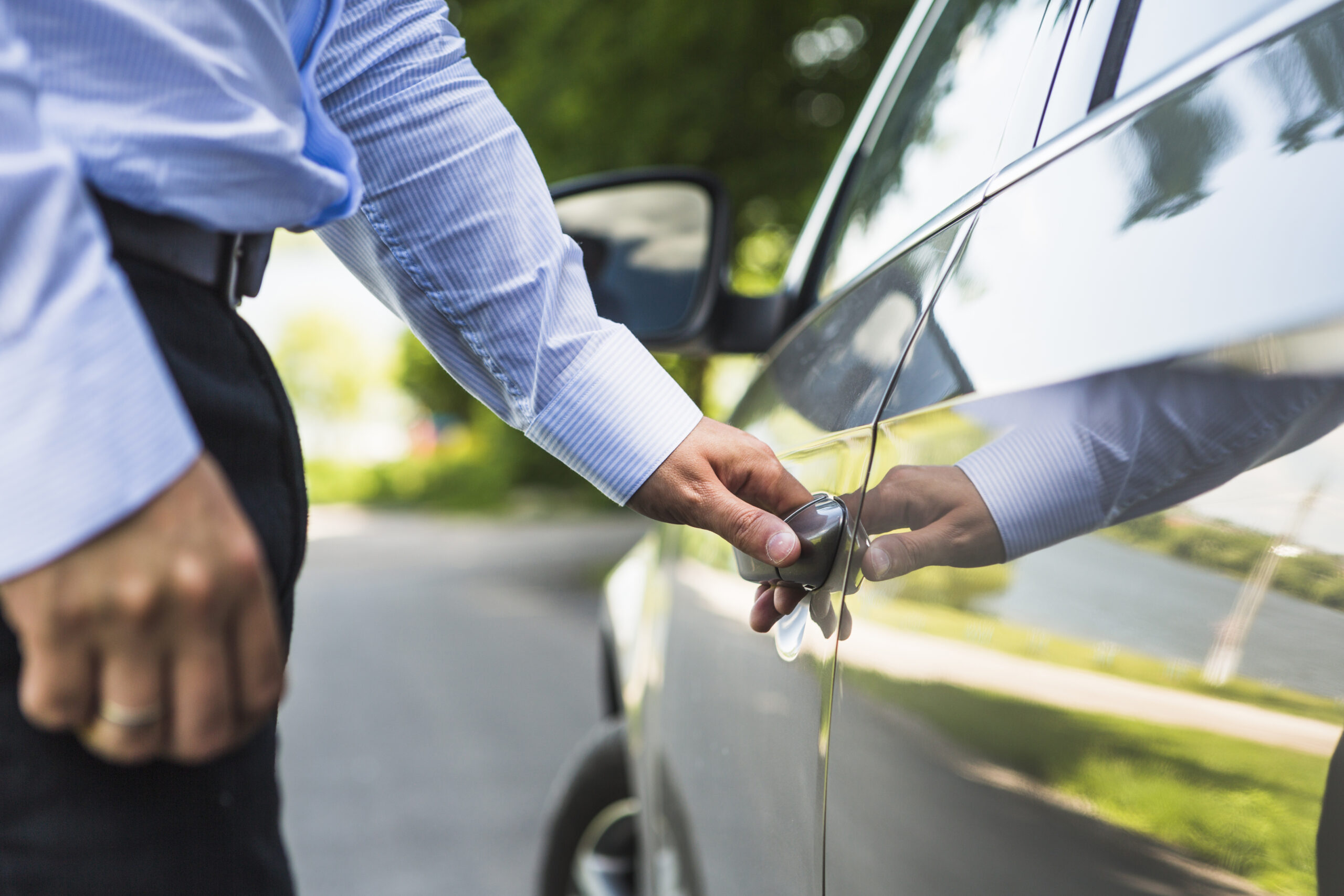
Divorce brings a whirlwind of changes, and one of the biggest concerns is how to split your belongings. Among these, your car often stands out as a particularly valuable and necessary asset. The division of cars in a divorce can be tricky, especially when you rely on your vehicle for daily life or work.
Your car in a divorce isn’t just a mode of transportation – it represents freedom, independence, and often a significant financial investment. That’s why figuring out who gets to keep the wheels can be such a heated topic during divorce proceedings. So, let’s take a closer look at what might happen to your ride when your marriage hits a dead end.

Marital vs. Separate Property
Understanding how property is classified in a divorce is key to figuring out what might happen to your car. Generally, property falls into two categories: marital and separate.
Marital property typically includes anything you or your spouse acquired during your marriage. This could be your home, furniture, or yes, your car. In some states, like California, marital property is referred to as community property. The idea behind this is that both spouses equally own these assets, regardless of who paid for them or whose name is on the paperwork.
On the flip side, separate property includes assets that belonged to you or your spouse before you got married or items that were given specifically to one of you as a gift or inheritance during the marriage. For example, if your aunt left you her vintage convertible in her will while you were married, that might be considered separate property.
How does this classification affect your vehicle? Well, if you bought your car while you were married, using the money you earned during the marriage, it’s likely to be seen as marital property. This means it could be up for grabs in the divorce settlement. However, if you owned the car before you tied the knot, you might have a stronger claim to keep it as separate property.
It’s worth noting that the line between community property vs separate property can get blurry. Maybe you owned the car before marriage but used marital funds to pay it off or make significant improvements. In cases like these, things can get complicated, and you might need some expert advice to sort it out.
Also, keep in mind that California marital property laws might differ from those in other states. If you’re going through a divorce in California, it’s especially important to understand how these laws might affect the division of your assets, including your car.
Who Gets the Car in a Divorce?
Now that we’ve covered the basics of property classification, you’re probably wondering, “But who actually gets to keep the car?” Well, it’s not as simple as flipping a coin or arguing over who loves it more. Courts look at several practical factors when deciding who gets the keys.
Primary Use and Necessity
First off, they’ll consider who uses the car the most. If you’re the one who relies on it to get to work every day, while your spouse works from home, that could work in your favor. Or if you’re the parent who uses the car to ferry the kids around to school and after-school activities, that might give you an edge.
Courts also look at the necessity of the vehicle for each spouse. For instance:
- Do you live in an area with limited public transportation?
- Is the car essential for your job?
- Do you have any medical conditions that make driving crucial?
These factors can significantly influence the court’s decision about who keeps the car.
Financial Contributions
The court will also look at who’s been footing the bill for the car. This includes:
- Who made the down payment?
- Who’s been making the monthly payments?
- Who pays for insurance, maintenance, and repairs?
If one of you has put more money into the vehicle, that could sway the decision in your favor. However, keep in mind that in community property states, financial contributions might not carry as much weight if the car was purchased during the marriage.
Multiple Vehicles
If you and your spouse own multiple vehicles, the division might be more straightforward. In such cases, each spouse might keep the car they primarily use. However, if there’s a significant difference in the values of the vehicles, other assets might be used to balance things out.
Vehicle Value and Overall Asset Division
The value of the car also plays a role in the bigger picture of dividing property. If one spouse keeps a valuable car, they might receive fewer other assets to balance things out. This is why it’s important to get an accurate valuation of your vehicle as part of the divorce process.
Alternative Solutions
Sometimes, neither spouse ends up keeping the car. Here are some alternative outcomes:
- Selling the car and splitting the proceeds
- Buying out your spouse’s share of the car
- Trading the car for another asset of similar value
These options can be particularly useful if neither spouse can afford to maintain the vehicle on a single income or if selling the car would help pay off shared debts.
The Role of Mediation
It’s worth noting that these decisions don’t always happen in a courtroom. Many couples work things out through divorce mediation. This can be a less stressful (and often cheaper) way of dividing property, including your vehicles.
In mediation, you and your spouse sit down with a neutral third party to hash out who gets what. It can be a good option if you’re both willing to compromise and work together.
Factors Unique to Your Situation
Every divorce is unique, and there might be factors specific to your situation that influence who gets the car. For example:
- If one spouse used separate property funds to purchase the car during the marriage
- If the car was a gift from one spouse’s family to that spouse specifically
- If one spouse has been the sole user and maintainer of the vehicle throughout the marriage
These special circumstances can impact the court’s decision or your negotiations during mediation.
The Importance of Documentation
Whatever your situation, it’s crucial to have proper documentation. This includes:
- The original purchase agreement
- Maintenance records
- Proof of payments
- Any agreements you and your spouse made about the car during your marriage
These documents can support your claim to the vehicle if there’s a dispute.
Remember, dividing property in a divorce isn’t about winning or losing. It’s about finding a fair solution that lets both of you move forward. Sometimes, that might mean selling the car and splitting the money. Other times, one person might keep the car but give up something else of equal value. There’s no one-size-fits-all answer when it comes to vehicles and divorce.
The key is to approach the situation with a clear head and a willingness to negotiate. If you’re struggling to reach an agreement, don’t hesitate to seek professional help. A mediator or a lawyer experienced in divorce cases can provide valuable guidance and help you find a solution that works for both parties.

Contact High Net Worth Divorce Lawyers
If you’re dealing with a high-value vehicle or multiple cars, it might be time to call in the pros. Divorce lawyers, especially those who specialize in high net worth cases, can be a huge help in navigating these tricky waters.
These lawyers know all the ins and outs of property division. They can help you understand your rights and fight for your fair share. If you’re in California, look for divorce lawyers California who are familiar with the state’s community property laws.
But why bother with a lawyer? Well, they can help you avoid costly mistakes. For example, did you know that in some cases, you might need to formally transfer vehicle title in divorce? A lawyer can guide you through this process, making sure everything’s done by the book.
They can also help you see the bigger picture. Maybe keeping the car isn’t actually the best move for you financially. A good lawyer can help you weigh all your options and make decisions that will benefit you in the long run.
Dealing with a divorce car can be a bumpy ride. From figuring out if your car is marital or separate property, to negotiating who gets to keep it, there’s a lot to consider. And let’s not forget the paperwork – things like vehicle transfer divorce forms can be a real headache if you’re not sure what you’re doing.
Also, keep in mind that every divorce is different. What worked for your friend or your cousin might not be the best solution for you. It’s all about finding a fair split that lets both you and your ex-spouse drive off into your new lives.
If you’re feeling overwhelmed, don’t be afraid to ask for help. Whether it’s through mediation or with the help of a lawyer, there are people who can guide you through this process. With the right support, you can navigate this challenging time and come out the other side with a clear road ahead.
Finally, remember that dealing with vehicle title divorce issues is just one part of the larger divorce process. While it’s important to fight for what’s rightfully yours, try to keep perspective. At the end of the day, your well-being and future happiness are what matter most.









